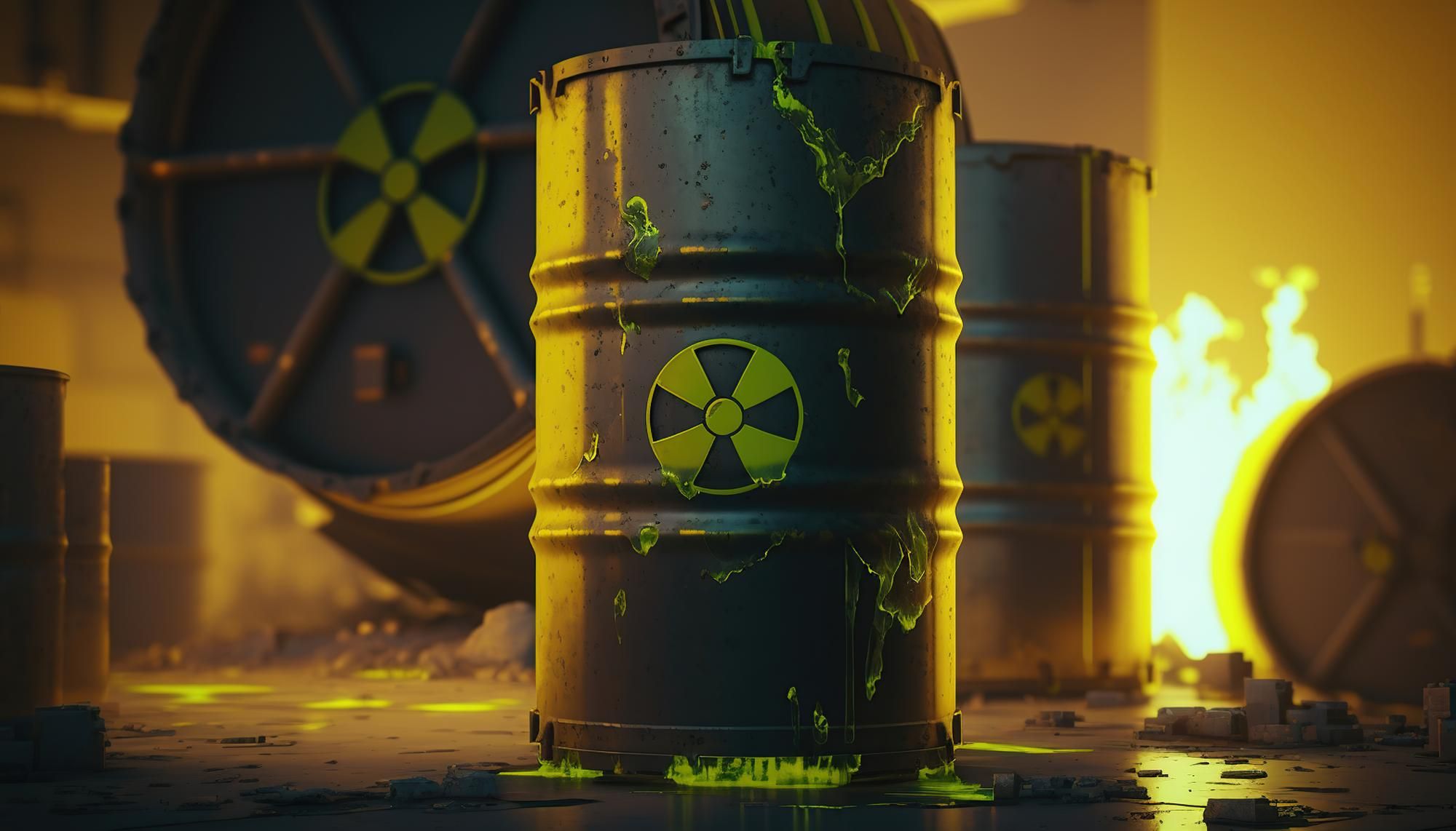„In Poland, there are many fictitious companies that declare the ability to dispose of hazardous substances, but after receiving the waste they leave it in ordinary warehouses or other places completely not intended for this,” says Paweł Głuszyński from the Society for the Earth (Towarzystwo na Rzecz Ziemi – Pl.) in an interview with BiznesAlert.pl.
The fire of the hall with toxic chemical waste in Zielona Góra caused a huge uproar among the public opinion. Similar unguarded landfills are being discovered across the country, and they too pose a fire hazard, extremely dangerous for local residents.
Over the years, a procedure for setting up companies dealing with the management of chemical waste has been established in Poland. The businesses were then dissolved and in result nobody monitored the storage of hazardous waste.
BiznesAlert.pl: What is the scale of unguarded chemical waste landfills in Poland?
Paweł Gluszyński: The scale is unknown. There are several national documents that theoretically should monitor how much such waste is produced, for example, the National Waste Management Plan and Provincial Waste Management Plans.
Every waste producer that produces more than 100 kg of hazardous waste per year is obliged to report them to the relevant Marshal’s office through the waste database (BDO). On the basis of these data, an analysis is made on the amount of waste generated, its recipients, storage sites and installations for the disposal of harmful substances.
The problem is that in Poland the whole procedure focuses on 2 types of waste: medical and polychlorinated biphenyls. We do relatively well with medical waste, but we have residual information about what happens to the remaining hazardous waste.
Importantly, only these two types of waste can be found in the strategy papers. Unfortunately, we do not have any information about what waste and in what quantities is generated in the chemical or manufacturing industry.
In addition, the entire waste database system was replaced by the current government in 2019 and is full of flaws. The changes were theoretically intended to improve the monitoring of waste flows, but instead of a database, a simple online „flat” information collection form was introduced.
Marshal offices are obliged to verify these reports, but on the scale of one province we are talking about tens of thousands of entities, which means that the offices do not have the ability to effectively verify information about waste, especially when they have to do it manually, and not through the typical tools of cross-sectional queries and data sorting, available in robust and sophisticated data bases.
The Climate Ministry should develop a module that could estimate the approximate amount of waste, but there is no such information anywhere. We are not able to quickly and cross-sectionally check what dangerous substances are produced and where they may end up.
How can such illegal practices be prevented?
The first step should be to create an efficient database system. The state should know the amount of waste produced in an industrial plant and be able to closely monitor the flow of hazardous substances.
Nitro-Chem is a good example. This company is the only one in Poland that produces one type of waste and should have its own installation for neutralizing dangerous substances, but at this point it doesn’t exist.
If a company wants to deal with the collection and management of industrial waste, it must obtain appropriate permits from city mayors or presidents. However, in this aspect, local administrative bodies do not verify the activities of companies, their reliability or technical capabilities.
When the waste is transferred from the plant to the company, the company that received it automatically becomes the owner of the waste and this releases the industrial plant from responsibility for the waste produced.
In Poland, there are many fictitious companies that declare the possibility of disposing of hazardous substances, but after receiving the waste they leave it in ordinary warehouses or other places completely not intended for this.
What is important, the local administrative authorities completely neglected the issue of verification and control of storage sites for this type of waste. Such places require special construction one of the reasons for that is to protect the ground and fire and ventilation systems from potential leaks, but officials did not pay much attention to this issue. As a result, a large number of these warehouses are located under the open sky.
Industrial plants can declare their desire or plans to establish a waste neutralization facility, but these must go through well-conducted administrative procedures that will thoroughly verify the investment intentions.
Is it fair to claim that Poland has become a „chemical dump of Europe”?
This is an exaggeration. 99 percent of the problem is about Polish waste and domestic criminals. There is the problem of illegal entry of chemical waste into the European Union, and this is unfortunately inevitable with open borders.
It is not possible to bring waste to Poland for storage or incineration, but it is possible to import waste for recycling.
Waste in the form of metals and plastics as well as small amounts of hazardous materials are legally imported into Poland. Of course, their flow could be better controlled, but the fact is that under the current government, the amount of this waste has increased despite the fact that we have a problem with managing the waste produced by ourselves.
Interview by Jacek Perzyński









